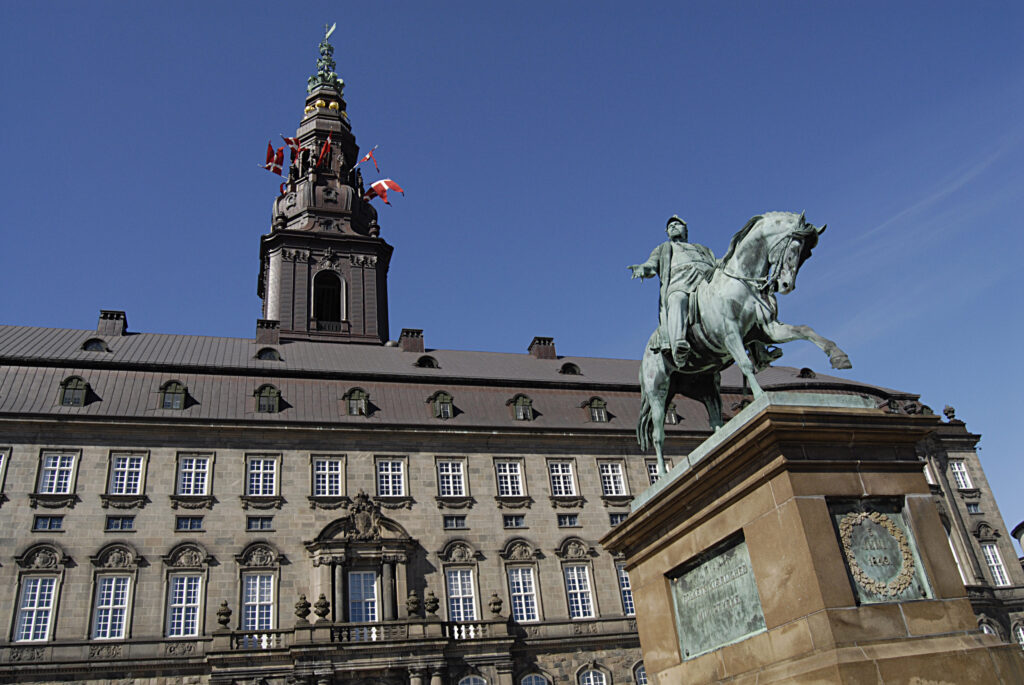by Helle Krunke
When the present Danish government was appointed in the fall of 2011 it announced that it wanted to initiate a new discussion of the Constitution and form a constitutional commission. This initiative was launched in a government platform together with other aims. However, the government now has one year left in office and no constitutional debate or commission has seen the light of day yet. In 2015 Denmark celebrates the 100-anniversary of the former 1915-Constitution which is normally said to be the Constitution which turned Denmark in to a real democracy. This event will be celebrated in different ways and it seems that this could be a good basis for a renewed debate on constitutional revision.
What does Danish contemporary debate on constitutional revision regard? One of the most controversial questions as regards constitutional revision is whether the European Convention of Human Rights (ECHR) should be part of the Constitution. Compared to the protection of human rights in the Constitution the ECHR plays a more and more important role in present court cases. However, giving the ECHR constitutional status is a politically sensitive question because some people view the European Court of Human Rights as too dynamic in its interpretations. Another question which comes up from time to time is whether the EU co-operation should be mentioned in the Constitution. The present Constitution dates back to 1953 and one might claim that the present Constitution does not reflect how political power is exercised in the present European context. It might be added that some countries have now explicitly mentioned their national Parliaments’ role and competences in EU affairs in the Constitutions. Attention has also been drawn to the need for a revision of the provision on transfer of power to supranational organizations. Furthermore, separation of state and church is frequently discussed. Denmark has a state church though freedom of religion. The role of the Monarch is another question which is sometimes raised. Denmark is a Constitutional Monarchy. In reality the Monarch has few competences left, one of them being that he/she signs legislation together with a minister. However, the Monarch is mentioned several times in the Constitution. The government now performs most of this competence and thus the Constitutional text does not reflect the present role of the Monarch. Finally, especially constitutional lawyers are interested in the question whether Denmark should have a constitutional court. Though this is not an exhaustive list it gives a picture of some of the most commonly discussed issues. If a revision should take place more balls would of course be in the air.
Constitutional amendments are rare in Denmark. The present Danish Constitution dates back to 1953. Since the introduction of the first Constitution in 1849 the Constitution has only been amended in 1866, 1920 and 1953. An attempt was made in 1939 but failed in the required referendum. In recent times a few attempts have been made without any result. In 1999 when the Danish Constitution turned 150 years, the Danish Parliament invited a number of legal scholars to discuss the need for constitutional revision. In 2003 when the 1953-Constitution turned 50 years one of the largest Danish political parties agitated for a general revision of the Constitution. Furthermore, in 2009 the Danish Act of Succession was amended in order to introduce gender equality. This amendment could only be carried out by following the procedure for changing the Constitution. This procedure is very comprehensive and includes a referendum in which a majority of those voting and at least 40 percent of all those entitled to vote must vote in favor of the proposed amendments. This criterion is hard to fulfill and gender equality as regards succession to the throne has always been mentioned as a “popular” question which could be used to engage the voters in a general revision of the Constitution. However, this opportunity was bypassed as the politicians only initiated an amendment of the Act of Succession. This raised some public debate and some voters voted against the amendment in order to show their protest against the fact that no steps were taken towards a general revision of the Constitution.
One of the reasons for this development with no constitutional revision for more than 60 years is of course that the amendment procedure is very heavy. Besides the mentioned referendum the procedure also requires an election and that the new Parliament supports the Bill for a new Constitution. This way, amendment of the Constitution requires much involvement of the electors. Other reasons could be that some politicians fear public debate on sensitive political issues such as the EU and whether the catalogue of human rights should be updated with the European Convention of Human Rights. A third reason could be that some political and non-political actors fear that they might lose competence if a constitutional revision debate is initiated and a new Constitution is passed. The initiative for constitutional change must come from Parliament and the government must support it.
As mentioned in 2015 Denmark celebrates the 100-anniversary of the former 1915-Constitution. The Danish Parliament has initiated a number of initiatives in order to celebrate it. The focus is democracy and democratic participation and many of the planned events have a specific aim at young people. A public debate on constitutional revision is not part of these initiatives. However, a renewed discussion of democracy and democratic participation might inspire to a broader constitutional debate.
